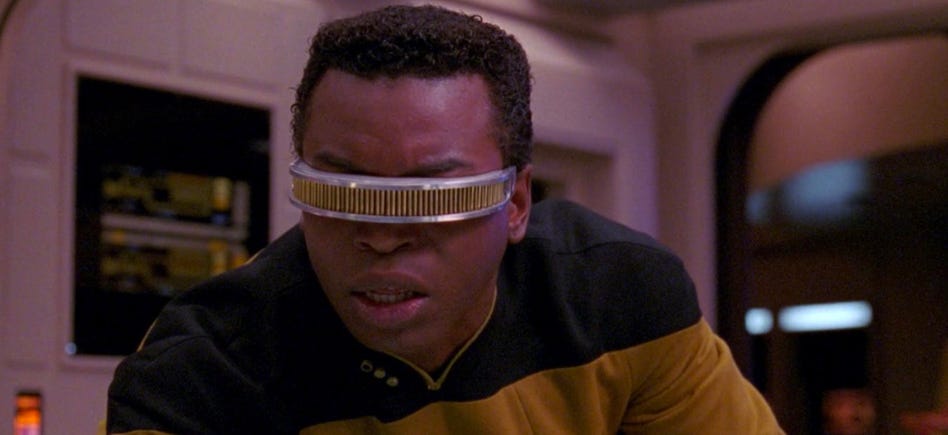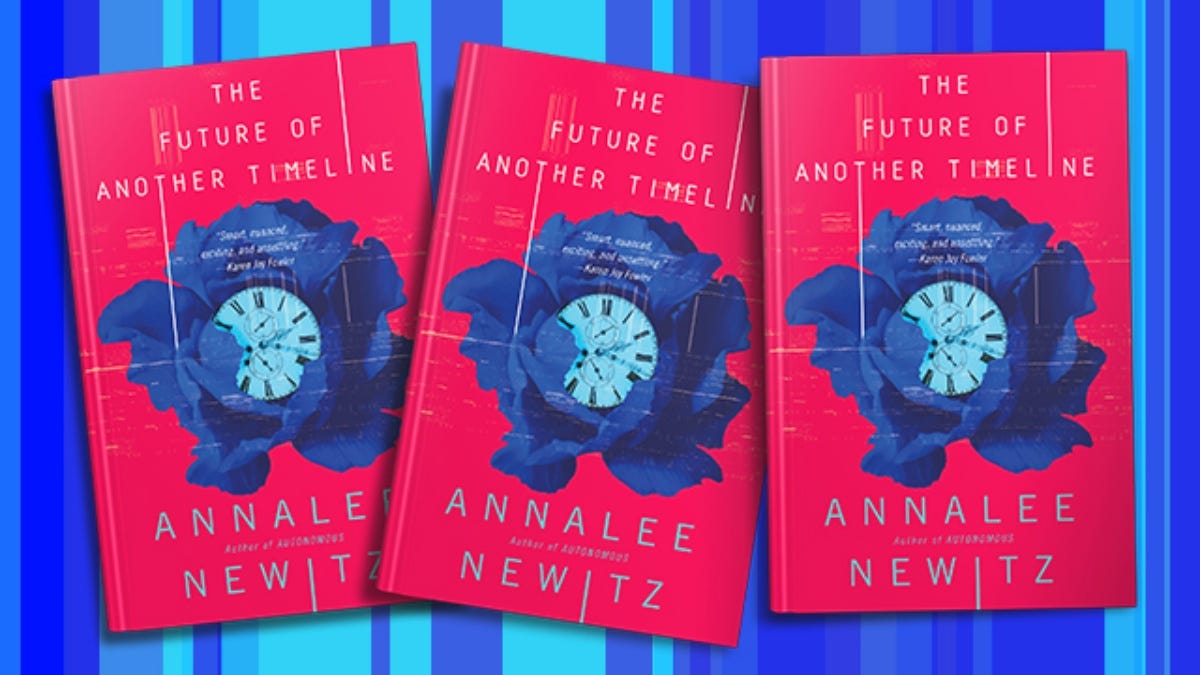Five possible cures for space madness
Many of us have reached the space madness phase of the quarantimes, but here are five things that might keep you sane for another week.
Brain implants for fun and profit
A group of scientists have used brain implants to restore vision to blind monkeys. A camera sends images through an array of electrodes sitting on the visual cortex, and they turn the images into electrical signals that the brain “sees.” It’s kind of like a cochlear implant, which does a similar job for the human ear, transducing sound into electrical signals for the brain. The ultimate result of this experiment could lead to something like the visual sensor that the character Geordi (LeVar Burton) wears on Star Trek: The Next Generation. But it could also lead to all kinds of science fictional stuff that’s a little creepy, like sending images to your brain that aren’t there. The ultimate gaslight machine. You can hear more about it on the Science podcast.
Resistance is better than dystopia
Speaking of dark SF visions, I was on a virtual panel last week discussing “how to build a better dystopia” with the brilliant authors Meg Elison, Malka Older, and Sabrina Vourvoulias. Though the nominal subject was dystopia, we wound up talking a lot about science fiction stories that deal with resistance and hope in the face of disaster. It was an event for Discon III, next year’s WorldCon, which hopefully will happen in the real world in Washington, DC.
Hot lesbian competence porn
For some reason it has become my job to alert people to the existence of amazing historical television shows about great lesbians in history, so allow me to remind you that you could be watching Gentleman Jack right now. Based on the secret diaries of a real-life woman, Anne Lister, it’s the tale of a hyper-competent, science-loving land owner who wishes nothing more than to be master of her domain -- and hook up with her rich, pretty neighbor. The first season revolves around early 19th century resource extraction, gender politics, land management policy, working class rights, and humping.
Where do rivers come from?
I do a lot of research when I’m writing a novel, and recently I was working on a scene where some characters are terraforming a planet and need to build a river that becomes central to the action. I realized that I have absolutely no idea how rivers come to be, nor why they change course, nor what they do when people dam them. It was a perfect excuse for me to interview USGS geologist Kyle House, an expert in the behavior of rivers, who seems to know the Colorado River by heart. He’s also famous among map and geology nerds for a series of blogs he’s created about “pathological geomorphology,” or weirdass river behavior. If you love those things, check out the photographs and “blogs past” section on his website, as well as his Instagram.
And if you want to know the answer to how rivers are made, apparently it’s VERY controversial. But Kyle said it’s plausible that a lot of large rivers are probably born when a massive supply of water has built up over thousands of years -- which means a lot of rivers in the U.S. have their origins in mountainous regions that hold water dating back to the glacier melts of the Pleistocene. Our rivers are ancient. Also, Kyle pointed out to me that rivers don’t just carry water -- they carry sediment. They move earth. So don’t forget that your friendly local rivers are reshaping the planet.
Free books for Hanukkah!
[NOTE: These copies are already gone! But don’t fret. I’ll do another giveaway in the new year!] And … speaking of novels! My publisher Tor sent me an extra box of hardcovers of my most recent novel Future of Another Timeline. Now I’ll pass these books on to you — or at least, the first twenty of you to ask for them! They make lovely presents. If you would like one sent to you or a loved one in the United States, I will happily sign and send one to the first twenty people to reply to this mail with a request for it. (Sadly, I can’t send outside the US because it’s too expensive.) Just email me with your address, and who you’d like me to make it out to (or if you’d just like a signature). Happy Hanukkah everybody!!!
My next book is Four Lost Cities: A Secret History of the Urban Age. It's coming out in February 2021, and you can pre-order it now. You can find information and ordering links for my other books on my website, helpfully organized into science fiction and journalism. You can also follow me on Twitter or Instagram — or listen to Our Opinions Are Correct, the fortnightly podcast I co-host with Charlie Jane Anders. If someone forwarded this email to you, you can subscribe to it here.




